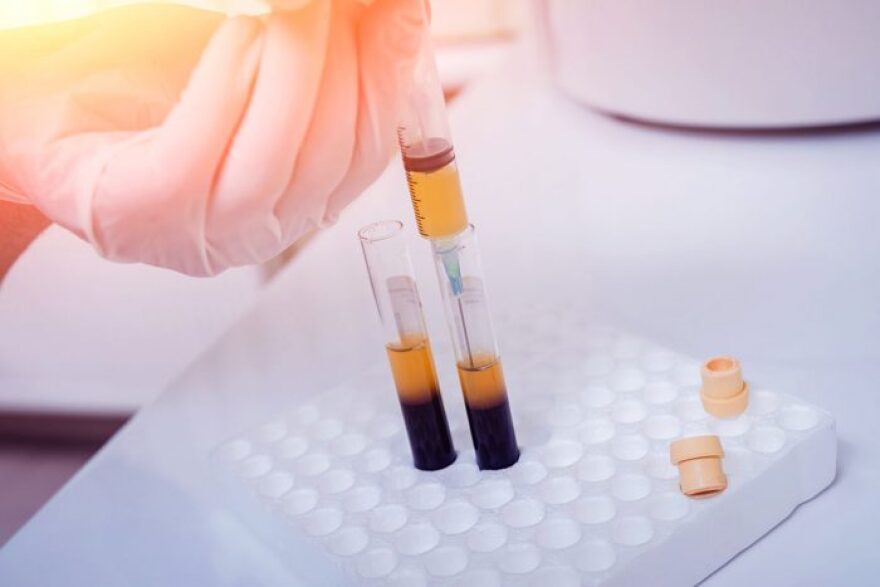Updated at 2:52 p.m. with comments from Dr. Jeffrey Henderson
Washington University researchers will soon begin testing a century-old technique that could help combat COVID-19.
The U.S. Food and Drug Administration on Tuesday approved the university’s application to test plasma transfusion: isolating and transfusing antibodies from the blood of patients who have recovered from COVID-19 to those who are at high risk or are already ill from the virus.
Researchers first need to collect blood from recovered patients, which could take some time, said Dr. Jeffrey Henderson, a professor at the Washington University School of Medicine.
“This can be used on a case-by-case basis if the treating physician feels that it could be a benefit,” Henderson said.
Several people have contacted him to offer blood donations. To donate, the person must have tested positive for COVID-19 and have been recovered from symptoms for at least 14 days, Henderson said.
More than 350 people in the U.S. have recovered from the disease, according to data from Johns Hopkins University.
Researchers will aim to determine how much antibody is present in the blood of recovered patients and how much would be effective for treating COVID-19 patients.
“We’ve done plasma transfusions for a long time. It’s a relatively safe procedure,” Henderson said.
Historically, doctors used the approach to effectively treat patients during the 1918 Spanish Flu pandemic and for a small number of people during the SARS outbreak in the 2000s.
Henderson initially began working with researchers at the Mayo Clinic in Rochester, Minnesota, and Johns Hopkins University in Baltimore. Because many doctors are interested in this research, the collaboration has expanded to about 50 institutions, he said.
“A lot of us have seen our jobs very suddenly change from one thing to another, and it has been hectic, but it’s been very affirming in that we have a lot of people dropping what they’re doing and pitching in to help,” Henderson said.
Follow Eli on Twitter: @StoriesByEli
Our priority is you. Support coverage that’s reliable, trustworthy and more essential than ever. Donate today.
Send questions and comments about this story to feedback@stlpublicradio.org




